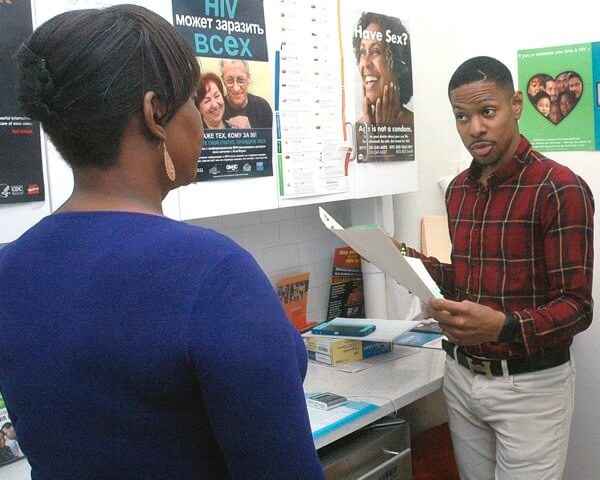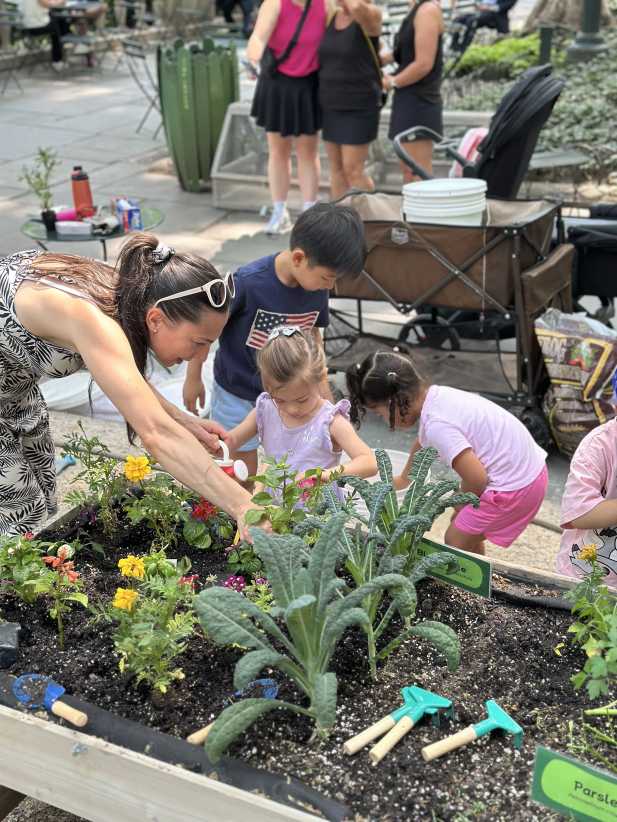By Carlotta Mohamed
Diane Delph-Tinglin was 23 years old when she was diagnosed with HIV in 2009. After feeling distraught about her diagnosis, she found her purpose and passion in life was to help educate others about HIV and the importance of testing through The Alliance for Positive Change.
The critical role of testing is being highlighted by the Alliance’s Summer of Testing campaign, aimed at raising $5,000 to fund HIV testing to encourage individuals to take charge of their health and know their HIV status.
The Alliance for Positive Change, located at 64 West 35th St. in Manhattan, connects 3,500 low-income clients to life-saving medical care and treatment. Individuals living with HIV and other chronic health conditions get medical care, peer support, and housing assistance they need to achieve health, happiness and stability, according to its website.
Delph-Tinglin, now 32, of Far Rockaway, is a lead trainer and facilitator for the positive life workshop, taught by individuals who are HIV-positive at Alliance.
“When I found out I was diagnosed, I didn’t know what a peer was; I didn’t have a peer,” said Delph-Tinglin. “Maybe there were peers at the time but I didn’t know… it made a difference in my life about how I felt about the virus. When I see clients come in with HIV or don’t understand the virus, I think of myself back then and say I was there.”
Delph-Tinglin, a certified peer worker, shares her life experience with her clients, who are age 18 and older. She typically sees between 18-30 clients in a workshop, and on a regular day, maybe three to four.
“It’s a four-day workshop, and those four days we do seven modules,” said Delph-Tinglin. “After each module, we have a peer experience group where clients can talk to us privately among a smaller group of people.”
According to Delph-Tinglin, going to therapy, learning about the virus, being on a treatment plan and communicating with her doctor have allowed her to look at HIV in a positive light and continue to live her life.
Although the New York City Health Department announced in November 2017 that the annual number of new HIV diagnoses continued to fall and had reached the lowest level since the epidemic began, communities of color still bear a disproportionate burden of HIV diagnosis.
According to the HIV Surveillance Mid-Year Report 2017, from the New York City Department of Health, 20 percent of the people diagnosed with HIV in the first half of 2017 are from Queens.
In 2016, Black and Latina/Hispanic women comprised 90 percent of all new diagnoses among women, and nearly 65 percent of new HIV diagnoses among men who have sex with men (MSM) of color.
At the center, 47 percent of Alliance’s participants are African-American, 35 percent are Hispanic/Latino, and 5 percent are Asian/Native American. Nearly 83 percent are active or recovering substance users.
Brandon Lee, a graduate of the Alliance Peer Education Program, and assistant manager of testing at Alliance, who provides free and confidential HIV and Hepatitis C testing at multiple Alliance sites, said their campaign has raised $680 to date.
“We’re trying to work and campaign to get that information out to get tested, because you might have it and might not know,” said Lee.
Lee said the goal is “zero new infections” and to get there, everyone — especially those at high risk like women and MSM of color — must be tested.
In 2016, 84 percent of HIV-positive people receiving HIV medical care in New York City were virally suppressed, up from 70 percent in 2011 when the Health Department began tracking viral suppression rates. Reaching viral suppression means that the amount of HIV in a person’s blood is very low, helping to stay healthy and live longer, and reducing the chances of passing on HIV to others, according to HIV Care Connect.
“With early diagnosis, many can live long, healthy lives with HIV. We are still battling the stigma of a positive HIV test result, and that can deter people from getting tested,” said Sharen Duke, executive director and CEO of Alliance. “To end this epidemic, it’s imperative for everyone to know their status and be connected to early treatment and care — or prevention services.”
Reach reporter Carlotta Mohamed by e-mail at cmoha


































